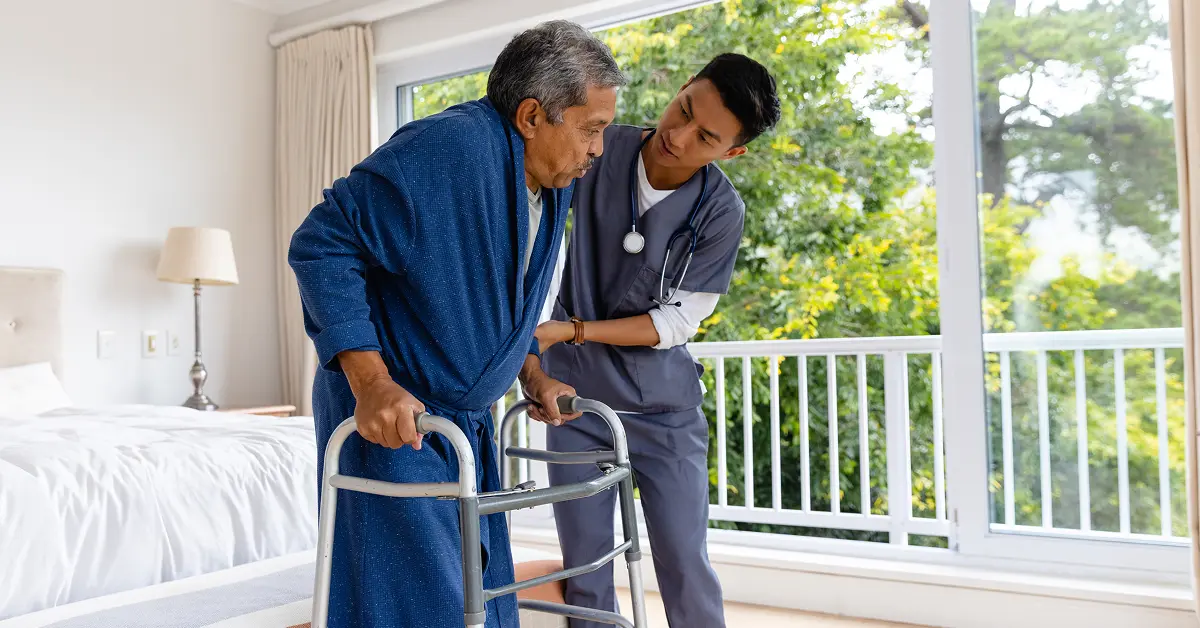Recovering after a hospital stay can be challenging, especially if you or a loved one require ongoing medical attention, assistance with daily activities, or emotional support. Finding the right post-hospital care support is crucial to ensure a smooth and safe recovery. If you are searching for “post-Hospital Discharge support near me,” this guide offers practical tips to help you make an informed choice.
Assess Your Needs Carefully
Before searching for post-hospital care services, it’s essential to identify your specific needs. Consider whether you need medical supervision, assistance with mobility, help with personal hygiene, or emotional support. Understanding the level of care required will help you narrow down your options and select services that are best suited for your recovery.
Look for Certified and Trained Caregivers
Post-hospital care often involves medical or personal assistance, so it’s vital to hire trained professionals. Certified caregivers, nurses, or healthcare aides have the skills necessary to manage medications, monitor vital signs, and assist with rehabilitation exercises. Verify credentials, licenses, and experience before finalizing your caregiver.
Seek Local Services for Convenience
Choosing a local post-hospital care provider ensures that support is readily available when needed. Local caregivers can respond quickly in emergencies and are familiar with nearby hospitals and clinics. Searching online for “post-hospital care near me” or checking local healthcare directories can help you find trusted options close to home.
Check Reviews and Testimonials
Customer feedback can provide valuable insight into the reliability and quality of post-hospital care services. Look for reviews on online platforms or ask for testimonials from previous clients. Positive feedback about professionalism, punctuality, and compassionate care can help you identify trustworthy caregivers.
Evaluate Experience in Post-Hospital Care
Experience matters when it comes to post-hospital support. Caregivers who have handled similar medical conditions or recovery situations are more likely to provide effective and safe care. Ask potential providers about their experience with patients recovering from surgery, chronic illness, or injury.
Assess Compatibility and Communication
Comfort and trust are essential for a successful caregiver-patient relationship. During the selection process, observe how the caregiver interacts with the patient. Effective communication, patience, and empathy are crucial qualities that ensure the patient feels supported and understood throughout the recovery process.
Confirm Availability and Flexibility
Recovery needs can change unexpectedly. Ensure that the caregiver or service provider can adjust schedules or extend support if necessary. Flexibility in availability, including short-term or long-term arrangements, helps maintain consistent care without interruptions.
Review Costs and Payment Options
Post-hospital care can involve significant expenses, so it’s important to clarify costs upfront. Compare rates of different caregivers and services, and check whether insurance covers part of the care. Transparent pricing and clear payment options help prevent financial surprises and allow you to plan your budget effectively.
Verify Safety Protocols
Safety is paramount during post-hospital recovery. Ensure that caregivers follow hygiene standards, infection control protocols, and emergency procedures. Proper safety measures reduce the risk of complications and provide peace of mind for both patients and families.
Explore Specialized Services if Needed
Some patients require specialized post-hospital care, such as physiotherapy, wound care, or post-surgery rehabilitation. Look for services that offer additional expertise to meet these specific needs. Specialized care enhances recovery outcomes and ensures that patients receive comprehensive support.
Consider Emotional and Social Support
Recovery is not just physical; emotional well-being plays a key role in healing. Caregivers who provide companionship, encouragement, and motivation can significantly improve the patient’s morale. Emotional support also helps reduce stress, anxiety, and feelings of isolation during recovery.
Schedule a Trial Period
Before committing long-term, consider scheduling a trial period with the caregiver or service. This allows you to assess the quality of care, compatibility, and responsiveness. A trial period can help identify potential issues early and ensure that the chosen support meets your expectations.
Maintain Open Communication
Successful post-hospital care requires ongoing communication between the patient, family, and caregiver. Regular updates about the patient’s condition, progress, and any concerns help adjust care plans as needed. Open communication fosters collaboration and ensures consistent, effective support.
Leverage Technology for Monitoring
Modern post-hospital care often includes remote monitoring through apps, devices, or telemedicine consultations. Utilizing technology allows caregivers and family members to track health metrics, manage medications, and stay informed about the patient’s recovery. This approach adds an extra layer of safety and convenience.
Trust Your Instincts
Finally, trust your instincts when selecting post-hospital care support. If a caregiver feels trustworthy, compassionate, and competent, it’s likely a good match. Intuition, combined with careful research and assessment, ensures the patient receives the best possible care.
Conclusion
Finding reliable post-hospital care support near you is essential for a smooth and safe recovery. By assessing your needs, verifying qualifications, checking reviews, and ensuring compatibility, you can select caregivers who provide personalized, compassionate, and effective support. Remember to consider safety, flexibility, emotional care, and specialized services when making your choice. Following these tips will help you secure professional post-hospital care that supports both physical healing and emotional well-being, allowing patients to recover confidently in the comfort of their home.
If you are looking for “post-hospital care support near me,” start your search today, and ensure your loved ones receive the care they deserve during recovery.
Contents
- Assess Your Needs Carefully
- Look for Certified and Trained Caregivers
- Seek Local Services for Convenience
- Check Reviews and Testimonials
- Evaluate Experience in Post-Hospital Care
- Assess Compatibility and Communication
- Confirm Availability and Flexibility
- Review Costs and Payment Options
- Verify Safety Protocols
- Explore Specialized Services if Needed
- Consider Emotional and Social Support
- Schedule a Trial Period
- Maintain Open Communication
- Leverage Technology for Monitoring
- Trust Your Instincts
- Conclusion
Our 24*7 services
Latest Posts
- What Is Respite Care and Why Is It Important
- Affordable home care for senior citizens in India
- Caring for Seniors with Dementia or Alzheimer's at Home
- Senior Caregiving A Guide for Every Family
- How to Write a Caregiver Resume That Gets You Hired
- How Care After Hospital Discharge Speeds Up Recovery at Home
- How to Get Home Health Care for Seniors Through Medicare
- What Does a Senior Citizen Caregiver Really Do at Home
- How to Care for Elderly Parents with Alzheimer’s or Dementia
- How to Get 24-Hour Care for Seniors at Home



